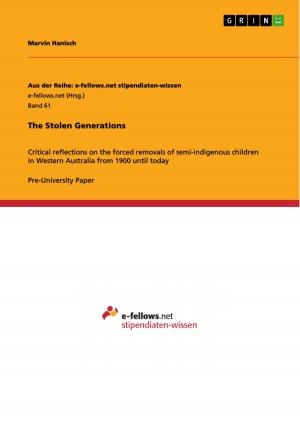The best what we can be - Gilgamesh the hero who found himself
Gilgamesh the hero who found himself
Nonfiction, Entertainment, Drama, Anthologies| Author: | Markus Hujara | ISBN: | 9783638633772 |
| Publisher: | GRIN Publishing | Publication: | April 16, 2007 |
| Imprint: | GRIN Publishing | Language: | English |
| Author: | Markus Hujara |
| ISBN: | 9783638633772 |
| Publisher: | GRIN Publishing |
| Publication: | April 16, 2007 |
| Imprint: | GRIN Publishing |
| Language: | English |
Essay from the year 2007 in the subject American Studies - Literature, grade: A (1), San Francisco State University ( ), course: Lecture , 0 entries in the bibliography, language: English, abstract: Gilgamesh is dead. And the men who are aware of the past are saying: 'Who has ever ruled with might and with power like him?' And the Gods who know the future are saying: 'of mankind...none will leave a monument for generations to come to compare with his.' The world has seen the ideal king. The one that had never come before and never will return. In strong-walled Uruk he was the strongest brick. Greatest king of all was his title. Gilgamesh his name. With the death of its hero the Epic of Gilgamesh finds its end. The city of Uruk cries for its king. Indeed history tells us that tears of subordinates are often commanded when the ruler passes by. But this time it seems different. When the people of Uruk pray for their dead king it is not only a duty. It is the last honest thanks and payback for 'the heart of Uruk'3. What has this king done to gain this outstanding love and admiration? What happened to this guy who was first presented to us as a cruel and egoistic autocrat
Essay from the year 2007 in the subject American Studies - Literature, grade: A (1), San Francisco State University ( ), course: Lecture , 0 entries in the bibliography, language: English, abstract: Gilgamesh is dead. And the men who are aware of the past are saying: 'Who has ever ruled with might and with power like him?' And the Gods who know the future are saying: 'of mankind...none will leave a monument for generations to come to compare with his.' The world has seen the ideal king. The one that had never come before and never will return. In strong-walled Uruk he was the strongest brick. Greatest king of all was his title. Gilgamesh his name. With the death of its hero the Epic of Gilgamesh finds its end. The city of Uruk cries for its king. Indeed history tells us that tears of subordinates are often commanded when the ruler passes by. But this time it seems different. When the people of Uruk pray for their dead king it is not only a duty. It is the last honest thanks and payback for 'the heart of Uruk'3. What has this king done to gain this outstanding love and admiration? What happened to this guy who was first presented to us as a cruel and egoistic autocrat















